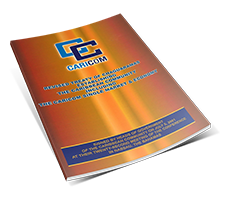Article 111: Types of Subsidies Causing Serious Adverse Effects
- The Member States shall not ordinarily impose or introduce countervailing duties or take countermeasures on products which benefit from:
(a) subsidies which are not specific within the meaning of Article 97; or
(b) subsidies which are specific within the meaning of Article 97 but which satisfy all of the conditions set out in this sub-paragraph here under:
(i) subsidies granted for research activities conducted by enterprises or by higher education or research establishments on a contract basis with firms if the assistance covers not more than 75 per cent of the costs of industrial research or 50 per cent of the costs of pre- competitive development activity and provided that such assistance is limited exclusively to:
(aa) costs of personnel (researchers, technicians and other supporting staff employed exclusively in the research activity);
(bb) costs of instruments, equipment, land and buildings used exclusively and permanently (except when disposed of on a commercial basis) for the research activity;
(cc) costs of consultancy and equivalent services used exclusively for the research activity, including bought-in research, technical knowledge, patents, etc.;
(dd) additional overhead costs incurred directly as a result of the research activity;
(ee) other running costs (such as those of materials, supplies and the like), incurred directly as a result of the research activity.
(c) subsidies granted to assist disadvantaged regions within the territory of a Member State given pursuant to a general framework of regional development and that are non-specific within eligible regions provided that:
(i) each disadvantaged region must be a clearly designated contiguous geographical area with a definable economic and administrative identify;
(ii) the Region is considered as disadvantaged on the basis of neutral and objective criteria, indicating that the region’s difficulties arise out of more than temporary circumstances; such criteria must be clearly spelled out in law, regulation, or other official document, so as to be capable of verification;
(iii) the criteria shall include a measurement of economic development which shall be based on at least one of the following factors:
(aa) one of either income per capita or household income per capita, or GDP per capita, which must not be above 85 per cent of the average for the territory concerned;
(bb) unemployment rate, which must be at least 110 per cent of the average for the territory concerned;
(d) subsidies granted to assist entities in the adaptation of existing facilities to new environmental requirements imposed by law and/or regulations which result in greater constraints and financial burden on enterprises provided that the subsidies –
(i) are a one-time non-recurring measure; and
(ii) are limited to 20 per cent of the cost of adaptation; and
(iii) do not cover the cost of replacing and operating the assisted investment, which must be fully borne by firms; and
(iv) are directly linked to and proportionate to a firm’s planned reduction of nuisances and pollution, and do not cover any manufacturing cost savings which may be achieved; and
(v) are available to all firms which can adopt the new equipment and/or production processes.
(e) subsidies granted to assist enterprises to undertake training or retraining of employees, whether or not the enterprise is new, and the upgrading of existing facilities to facilitate transition to competitive status within the Community, provided that such subsidies are not specific.
- The Member States shall notify COTED of any subsidy mentioned in paragraph 1. Any Member State may request further information regarding a notified subsidy programme and COTED shall review annually all notified subsidies referred to in paragraph 1.
